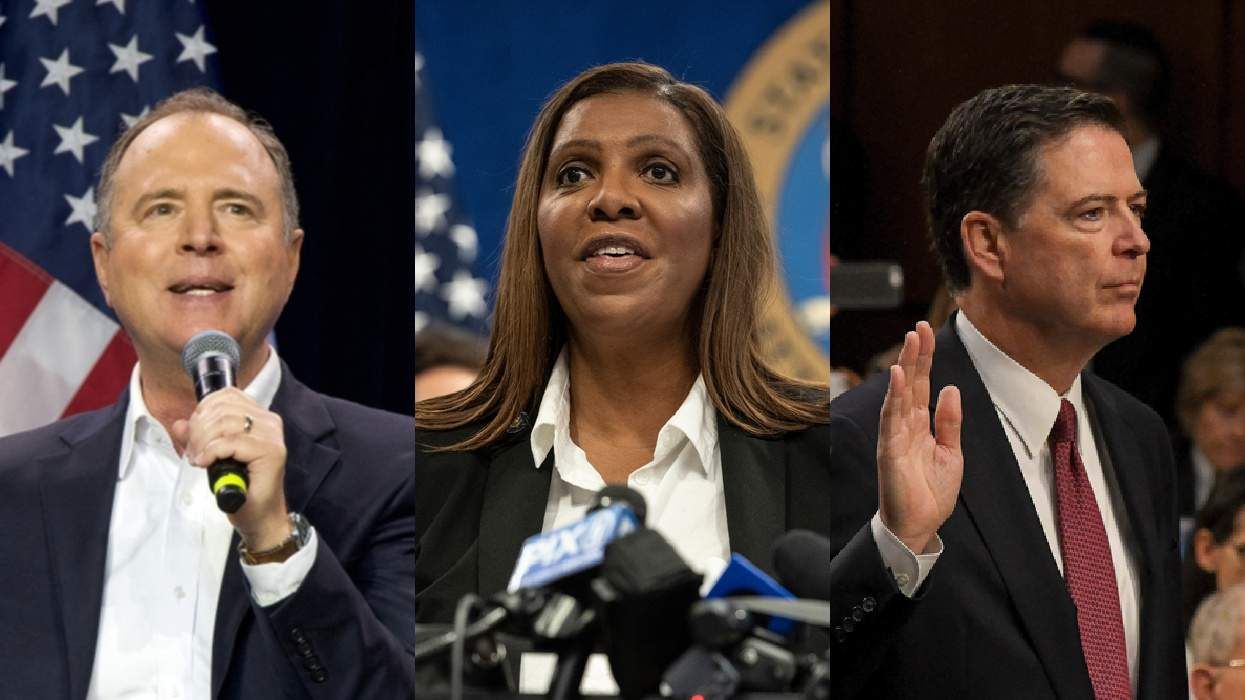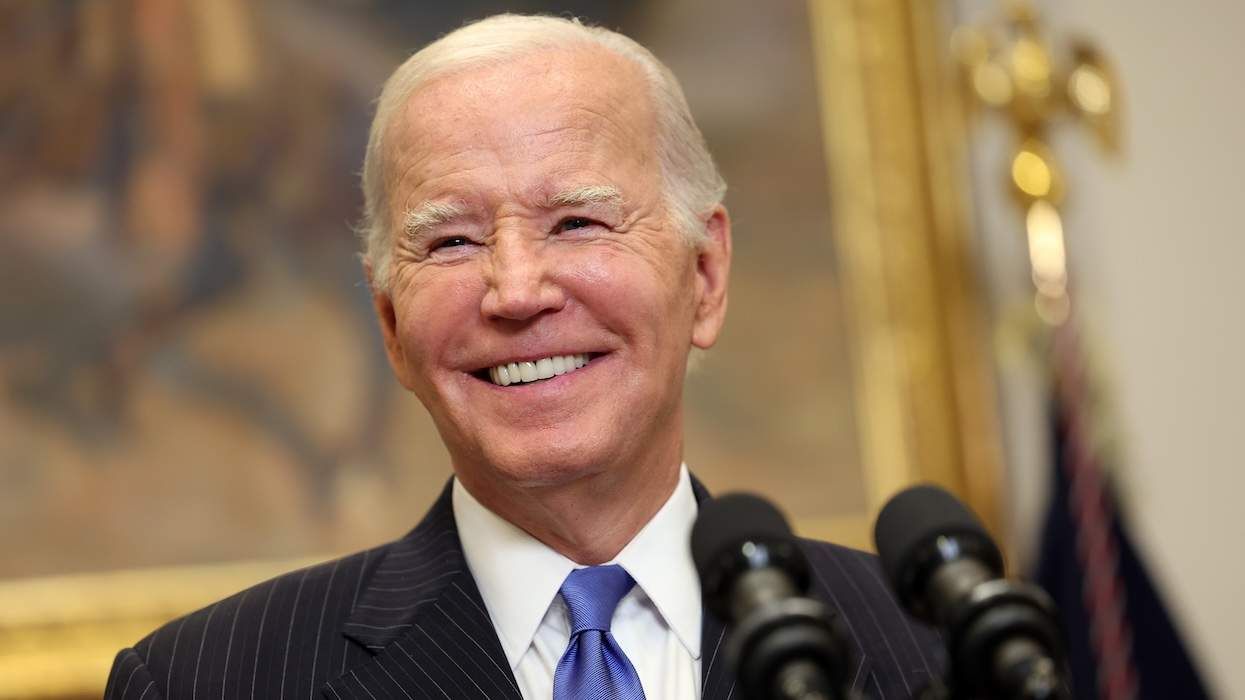CONTACTAbout UsCAREER OPPORTUNITIESADVERTISE WITH USPRIVACY POLICYPRIVACY PREFERENCESTERMS OF USELEGAL NOTICE
© 2025 Equal Entertainment LLC.
All Rights reserved
All Rights reserved
By continuing to use our site, you agree to our Privacy Policy and Terms of Use.
We need your help
Your support makes The Advocate's original LGBTQ+ reporting possible. Become a member today to help us continue this work.
Your support makes The Advocate's original LGBTQ+ reporting possible. Become a member today to help us continue this work.
The likelihood of repealing "don't ask, don't tell" this year may hinge on whether the Department of Defense includes the policy change in the budget recommendations it sends to Capitol Hill every spring.
"If repeal looks as though it's happening because the military is asking for it, then it has the greatest likelihood of succeeding," said Dixon Osburn, cofounder and former executive director of the repeal lobby group Servicemembers Legal Defense Network.
One Capitol Hill veteran, who spoke on the condition of anonymity, added that a Pentagon endorsement could hold particular sway in the Senate, the most problematic chamber. "If it's in the DOD authorization, not a single Democratic senator has said they would vote to take it out," said the source. "I'm hard-pressed to believe that Democrats would vote with the GOP to strip it out."
But if ending the gay ban is not in the Pentagon's original bill and repeal has to be added as an amendment, the source suggested that could shift how senators view the vote. "That's a whole different dynamic -- then it becomes not a vote to support the administration, but a vote to go against the Department of Defense."
The Defense Department sends its budget recommendations to the House and Senate Armed Services Committees sometime between late February and early April, but people with knowledge of the subject say the White House and the Pentagon confer closely on what will be included or discarded in the document.
"Folks at the Department of Defense have said the Defense secretary is prepared to put repeal in there, but he is waiting for instructions to do so from the White House," said the anonymous source. "The real question is, What conversations is the White House having with the senior military and the Department of Defense to put it in there?"
The president also submits an overall budget to Congress every year no later than the first week of February.
Osburn called the corresponding budgets, as they pertain to Defense, "body lateral," in that the documents mirror each other.
"I
don't think the Defense Department would put anything in there that the
president had not signed off on," said Osburn. "And I don't think the
president would put something in that had not been discussed with the
Defense Department."
Most insiders agree that the leadership at
the Pentagon will not willingly engage the issue of repeal unless they are
directed to do so by the White House. The current executive director of
SLDN, Aubrey Sarvis, began advocating for those discussions in
mid December.
The
anonymous source agreed: "Left to their own devices, they will kick it
down the field, which is why it will take some political leadership."
But
the source does not believe that either Defense secretary Robert Gates
or Joint Chiefs chair Adm. Mike Mullen is presenting pointed
resistance to the policy change.
"The push-back is coming from
senior military folks, not Mullen or Gates," said the source, naming
Gen. James T. Conway, head of the U.S. Marine Corps, as a key
detractor. The Washington Times reported last fall on Conway's
opposition to ending the policy.
One unknown is where National
Security Advisor Gen. James Jones stands on the subject at this
point, though last fall he said that President Barack Obama should wait
until "the right time" to overturn the policy.
A second
anonymous source, a former congressional staffer with knowledge of the
Hill, said people at high levels in the White House are aware of the
budget issue, but the task of completing health care reform has not
left much space for them to focus on how to accomplish repeal or when to
do it.
"I think they are still buried in health care, but I am getting more signals that they may push this year," the source said.
Overall,
the source added, repealing "don't ask, don't tell" has more resonance
than other LGBT issues and is seen as a political win by many at the
White House -- not just for gay advocates, but for the larger
progressive movement.
The first source emphasized that having
repeal included from the outset in this year's Defense authorization
budget would significantly increase chances for passage because it
would send a signal that the Pentagon supports repeal. That would
soothe lawmakers like senators Jim Webb of Virginia, Bill Nelson of
Florida, and Evan Bayh of Indiana, all of whom have indicated they would
defer to the Pentagon on the matter.
But Osburn offered a more
rosy assessment of an amendment's prospects in the House, which is
expected to hold hearings on the matter this spring.
"If there's
a consensus and a majority who approve repeal in House, there will be
plenty in the Congressional Record that shows it's time to repeal
'don't ask, don't tell,'" he said.
Osburn added that the Senate could be problematic regardless of which approach is taken.
"There's
been no debate in the Senate, there's not even a bill in the Senate, so
I worry about building the consensus there that's necessary," he said. "But regardless of what DOD does, Congress still has the opportunity to include it."
From our Sponsors
Most Popular
Bizarre Epstein files reference to Trump, Putin, and oral sex with ‘Bubba’ draws scrutiny in Congress
November 14 2025 4:08 PM
True
Jeffrey Epstein’s brother says the ‘Bubba’ mentioned in Trump oral sex email is not Bill Clinton
November 16 2025 9:15 AM
True
Watch Now: Pride Today
Latest Stories
HIV-positive men stage 'Kiss-In' protest at U.S.-Mexico border (in photos)
December 01 2025 12:56 PM
Maryland community outraged after ‘bigoted’ early morning rainbow crosswalk removal
December 01 2025 11:07 AM
19 LGBTQ+ movies & TV shows coming in December 2025 & where to watch them
December 01 2025 9:00 AM
Gay NYC councilman running for Congress says America is at a crossroads
December 01 2025 6:52 AM
What the AIDS crisis stole from Black gay men
December 01 2025 6:00 AM
Japan's ban on marriage equality is constitutional, according to a Tokyo court
November 28 2025 4:59 PM
How a queer fashion show took on New York Fashion Week
November 28 2025 4:58 PM
8 LGBTQ+ films coming in 2026 that we can't wait to see
November 28 2025 12:00 PM




































































Charlie Kirk DID say stoning gay people was the 'perfect law' — and these other heinous quotes